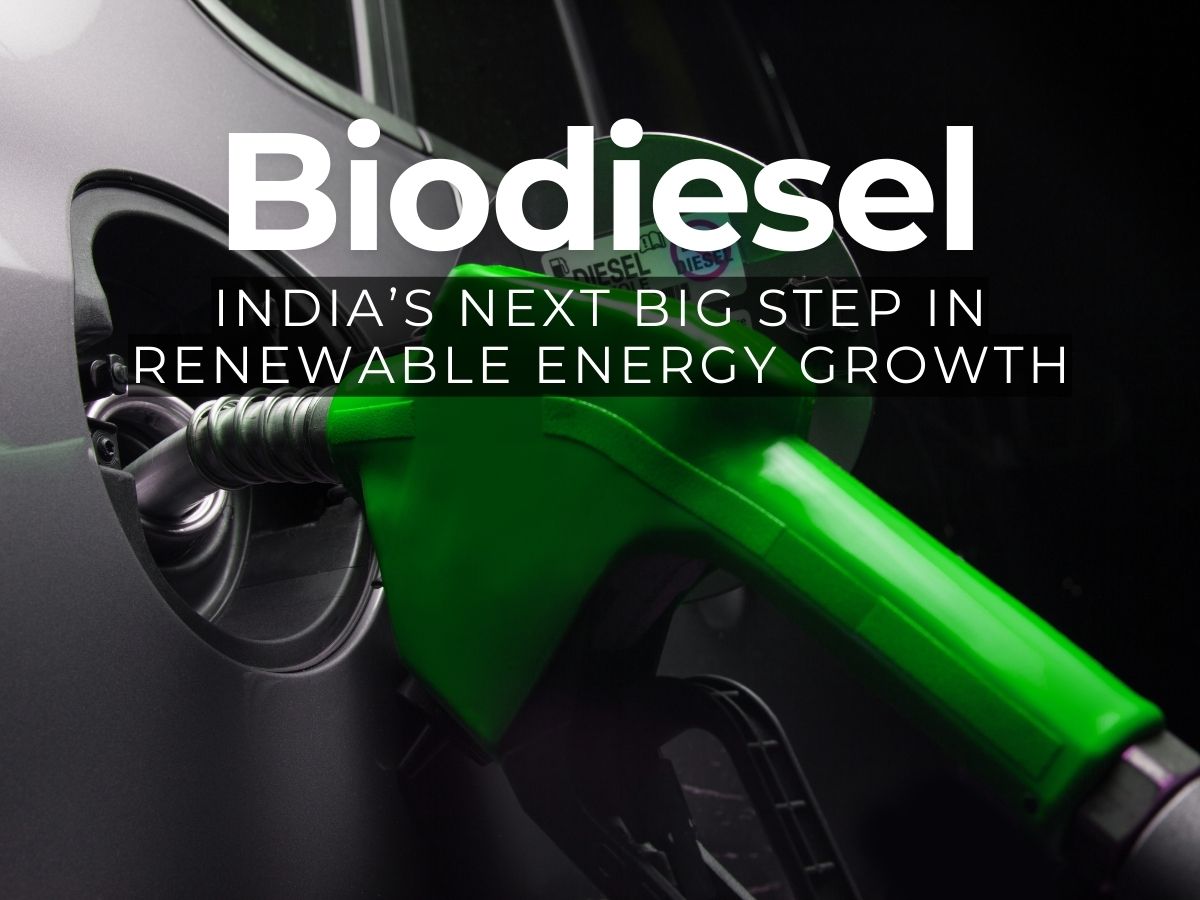
Biodiesel: India’s Next Big Step in Renewable Energy Growth
New Delhi, December 6: After achieving significant milestones in solar, wind, and bioethanol energy, India is now focusing on biodiesel as the next growth story in the renewable energy sector. This shift is aligned with Bharat’s commitments to reducing greenhouse gas emissions and achieving net-zero status by 2070.
Biodiesel is globally recognized as a renewable fuel that plays a pivotal role in reducing emissions and combating global warming. Produced from renewable sources, biodiesel not only curbs carbon emissions but also offers a long-term solution to reduce import dependency, especially for developing nations like India.
In 2021, India introduced the National Policy on Biofuels (NPB) to enhance energy security, mitigate climate change, and create sustainable employment opportunities. The policy mandates a 20% blend of biodiesel with petroleum-based diesel.
Given India’s current diesel consumption of approximately 1,000 lakh metric tonnes annually, this translates to a demand for 200 lakh metric tonnes of biodiesel per year. To meet this target, public sector oil marketing companies (PSU OMCs) such as Indian Oil, Bharat Petroleum, and Hindustan Petroleum are spearheading the biodiesel blending program.
PSU OMCs have floated tenders to procure biodiesel at a fixed price, creating a win-win situation for manufacturers and OMCs alike. Manufacturers are assured of selling their entire production capacities, while OMCs gain access to high-quality biodiesel.
To discourage the sale of unblended diesel, the government has imposed an additional levy of ₹2 per litre on unblended diesel, effective April 1, 2025. This penalty incentivizes OMCs to comply with biodiesel blending norms, providing an indirect yet significant boost to the biodiesel industry.
Currently, there are 36 PSU OMC-approved biodiesel manufacturers in India, with a combined capacity of only 12 lakh metric tonnes annually—far below the required 200 lakh metric tonnes. This leaves a massive gap of 188 lakh metric tonnes that needs to be bridged by 2030.
This demand-supply gap signals a tremendous opportunity for capacity expansion in the biodiesel sector. Existing manufacturers like Emami Limited, Kalesuwari Refineries, Monopoly Innovations, and BioD Energy are well-positioned to benefit, along with two listed entities, Kotyark Industries Limited and Rajputana Biofuels Limited.
The use of 200 lakh metric tonnes of biodiesel is estimated to reduce carbon dioxide emissions by 400 lakh metric tonnes annually. This substantial reduction will greatly aid India’s progress toward achieving its net-zero goals. Moreover, the biodiesel push is expected to generate rural employment, promote land development, and encourage carbon sequestration.
With the government’s robust support and clear focus on biodiesel blending, the sector is poised for exponential growth. By bridging the supply gap and leveraging the potential of biodiesel, India can significantly bolster its renewable energy landscape and cement its position as a global leader in sustainable development.
In a dramatic departure from his high-octane action roles, Tom Cruise has surprised fans with…
Aditya Dhar’s spy thriller Dhurandhar has emerged as a massive cinematic force, crossing the ₹710…
Five years after the critical success of Raat Akeli Hai (2020), director Honey Trehan and…
From grocery shopping in anonymity to her upcoming dark thriller Mrs. Deshpande, Madhuri proves that…
The legendary filmmaker claims Aditya Dhar has "single-handedly changed the future of Indian cinema" with…
The interim government apologizes to journalists and vows justice for a lynched Hindu man as…